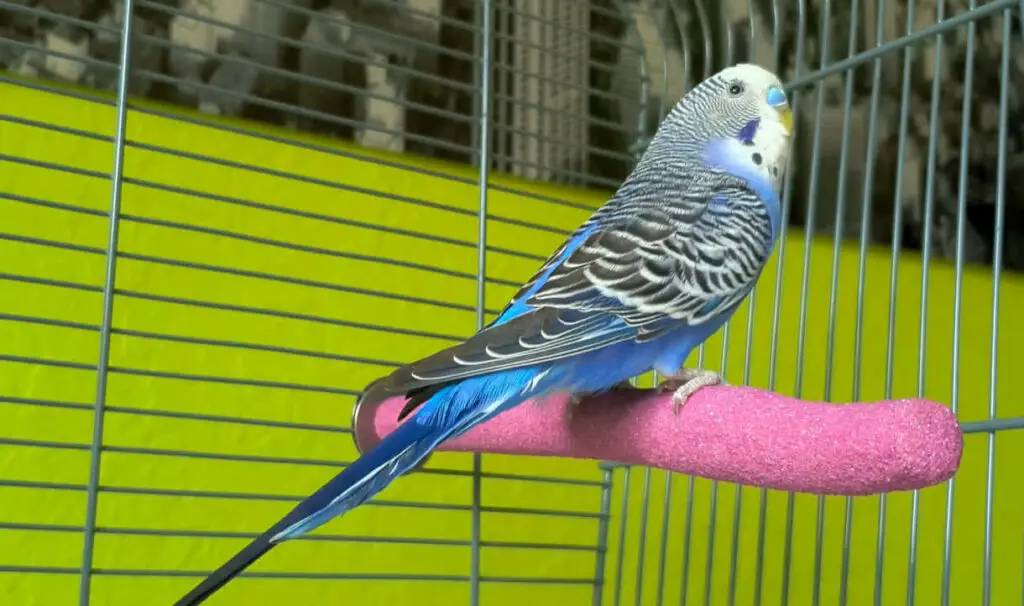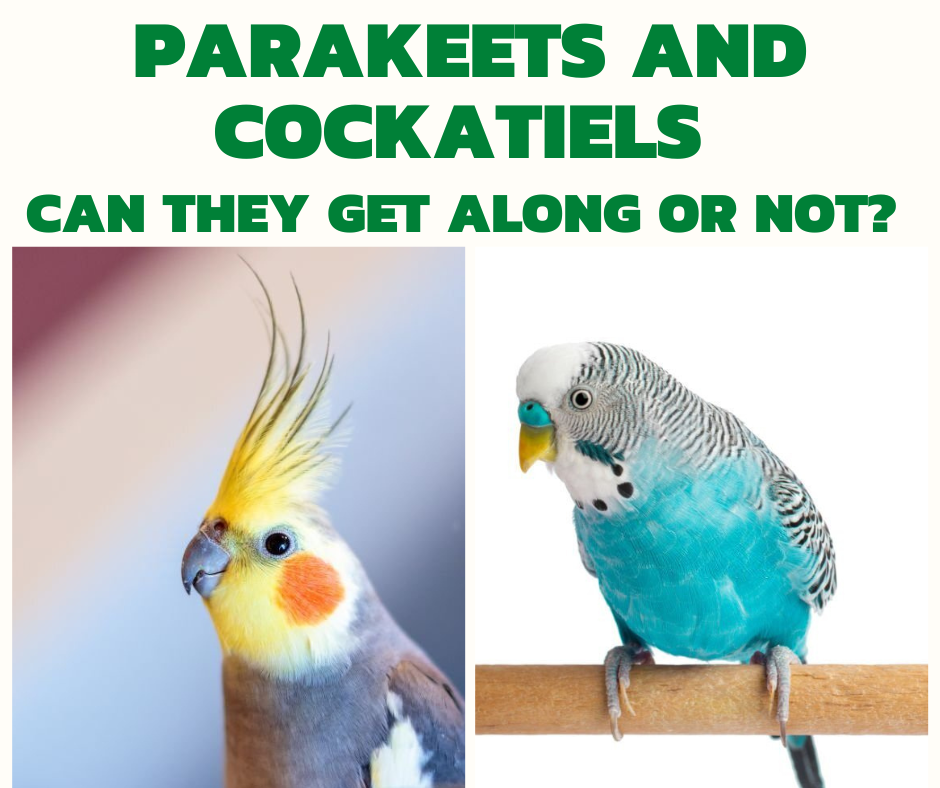Feathered pals, particularly these of the avian selection, require our utmost care and a spotlight to thrive in our properties. The weight-reduction plan we offer them performs a vital position of their general well being and well-being. Parakeet homeowners, particularly, perceive the significance of offering the precise diet to their beloved birds. On this complete information, we discover the query: Can cockatiels eat parakeet meals? Parakeet homeowners will discover beneficial insights into the dietary wants of their feathered companions and the way to make sure their birds obtain the perfect diet potential.

Contents
Can Cockatiels Eat Parakeet Meals?
The million-dollar query for parakeet homeowners with a curious eye on parakeet meals is whether or not cockatiels can safely eat it. Whereas parakeet meals is formulated to satisfy the dietary wants of parakeets, it will not be an excellent selection for cockatiels.
Cockatiels have a extra numerous weight-reduction plan in comparison with parakeets. They require a broader vary of vitamins, together with extra vegatables and fruits, to keep up their well being. Parakeet meals could not present the required selection for cockatiels to thrive. Furthermore, the dimensions of the seeds in parakeet meals could also be too small for cockatiels to deal with comfortably.
Key Variations Between Cockatiels and Parakeets
Earlier than delving into the specifics of parakeet meals and its suitability for cockatiels, it is important to grasp the variations between these two in style pet fowl species. Whereas each parakeets and cockatiels are members of the parrot household, they’ve distinctive traits, together with distinct dietary necessities.
Parakeets are small parrots identified for his or her vibrant colours and social nature. They’ve a robust desire for seeds and grains of their weight-reduction plan. Cockatiels, however, are barely bigger birds with hanging crests and a extra different weight-reduction plan. Understanding these variations is essential when figuring out the suitability of parakeet meals for cockatiels.
The Totally different between Dietary Necessities for Cockatiels and Parakeets
To particularly clarify why parakeet meals just isn’t an excellent selection for cockatiels, we have to delve into the variations between the dietary necessities of cockatiels and parakeets.
Dietary Necessities for Cockatiels
Cockatiels have particular dietary wants that differ from these of parakeets. To make sure your cockatiel’s well-being, contemplate the next dietary necessities:
- Selection: Cockatiels thrive on a various weight-reduction plan that features seeds, fruits, greens, and different meals. The variation of their weight-reduction plan ensures they obtain a broad spectrum of vitamins.
- Protein: Cockatiels require extra protein of their weight-reduction plan than parakeets. Guarantee they obtain protein from sources like legumes, cooked eggs, and fortified pellets.
- Vitamin A: Vitamin A is essential for the well being of a cockatiel’s pores and skin and feathers. It may be obtained from meals like candy potatoes, carrots, and leafy greens.
- Calcium: To take care of wholesome bones and eggshell manufacturing, cockatiels want a superb supply of calcium. Calcium-rich meals embody broccoli, kale, and low-fat dairy merchandise.
- Hydration: Contemporary, clear water ought to all the time be obtainable to your cockatiel.
Dietary Necessities for Parakeets
Parakeets have an easier dietary profile in comparison with cockatiels. Their major weight-reduction plan consists of seeds and grains, with the occasional addition of vegatables and fruits. Key factors to think about when feeding parakeets embody:
- Seed combine: Parakeets usually get pleasure from a mixture of seeds similar to millet, canary grass seed, and sunflower seeds. Search for high-quality seed mixes to supply the perfect diet.
- Selection: Whereas seeds are the mainstay of a parakeet’s weight-reduction plan, it is important to introduce selection via recent vegatables and fruits. This provides important nutritional vitamins and minerals to their weight-reduction plan.
- Calcium: Parakeets want calcium for his or her bones and eggshell formation. Calcium sources for parakeets embody cuttlebone and mineral blocks.

Transitioning from Parakeet Meals to Cockatiel Food regimen
For many who personal each parakeets and cockatiels and are contemplating transitioning their cockatiels to a extra applicable weight-reduction plan, this is a step-by-step information:
- Gradual transition: Slowly introduce new meals into your cockatiel’s weight-reduction plan whereas step by step decreasing the quantity of parakeet meals. This helps them alter to the change with out inflicting stress.
- Monitor conduct: Take note of your cockatiel’s conduct and urge for food. In the event that they present reluctance to new meals, be affected person and chronic.
- Introduce recent meals: Incorporate recent vegatables and fruits like apples, broccoli, carrots, and leafy greens into their weight-reduction plan. Bear in mind to clean these things completely and take away any uneaten parts.
- Hydration: Guarantee your cockatiel all the time has entry to recent water. Clear their water dish repeatedly to forestall bacterial development.
- Seek the advice of an avian vet: You probably have issues about your cockatiel’s weight-reduction plan or well being through the transition, seek the advice of an avian veterinarian for steerage and help.
Misconceptions about Cockatiel and Parakeet’s Food regimen
On the planet of pet fowl care, a number of myths and misconceptions abound. It is important for parakeet homeowners to have correct info to supply the perfect care for his or her feathered companions. Some widespread myths and misconceptions embody:
- One-size-fits-all diets: Assuming that the identical weight-reduction plan works for all parrot species could be detrimental to their well being. Every species has distinctive dietary necessities.
- Seeds are dangerous: Whereas seeds shouldn’t be the only real element of a fowl’s weight-reduction plan, they don’t seem to be inherently dangerous. It is the dearth of selection that may trigger dietary imbalances.
- Pellets are the final word answer: Whereas pellets are a handy approach to supply balanced diet, they need to not change the variability offered by recent meals.
- Too many vegatables and fruits: Whereas recent produce is important, an extra of vegatables and fruits can result in imbalances in a parakeet’s weight-reduction plan. Moderation is vital.
- Lack of water: Some fowl homeowners underestimate the significance of offering recent water every day. Dehydration can result in quite a few well being issues.
Conclusion
As accountable parakeet homeowners, it’s our responsibility to make sure our pets obtain the absolute best care, together with a balanced and species-specific weight-reduction plan. Whereas parakeet meals is formulated for parakeets, it will not be probably the most appropriate selection for cockatiels, which have totally different dietary necessities. Understanding the distinctive dietary wants of every species is essential for his or her well being and well-being.
By offering a various and balanced weight-reduction plan that features seeds, recent fruits, and greens, you’ll be able to be sure that your parakeets and cockatiels lead pleased, wholesome lives. In case you ever have doubts or questions on your birds’ weight-reduction plan, do not hesitate to seek the advice of an avian veterinarian for professional recommendation. With the precise information and care, your feathered companions will thrive in your care.







